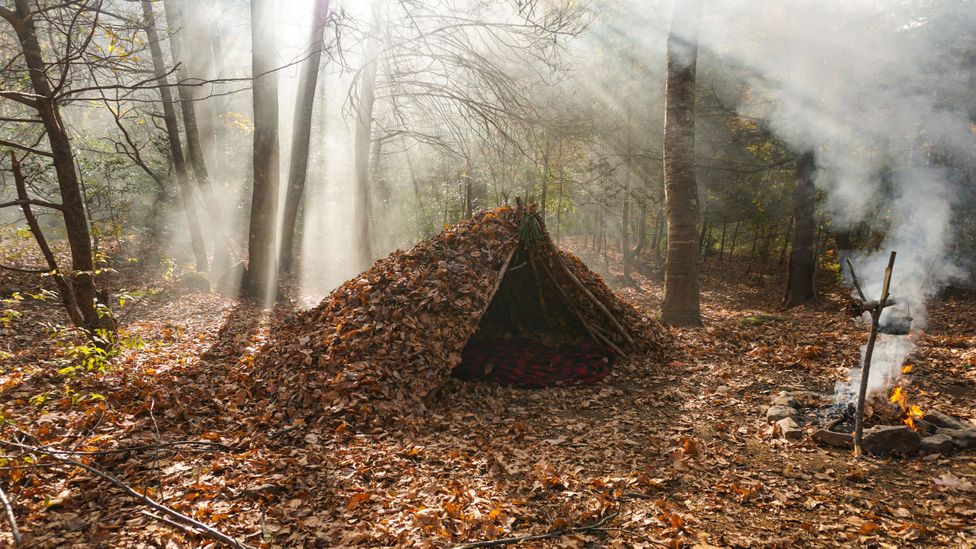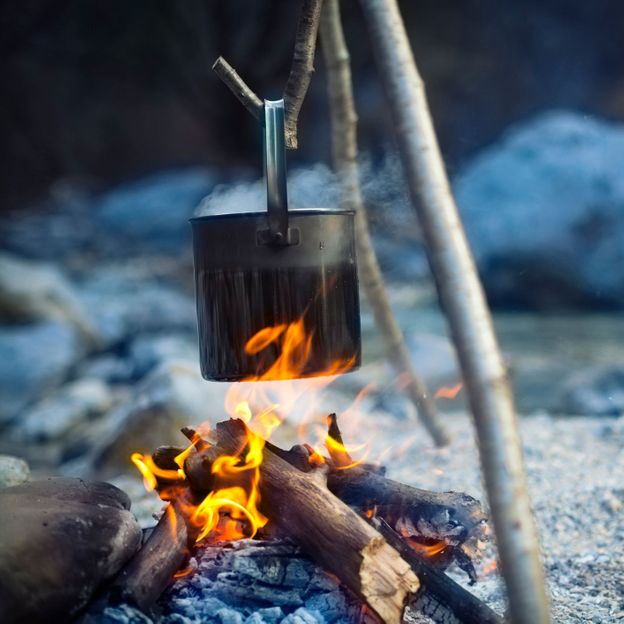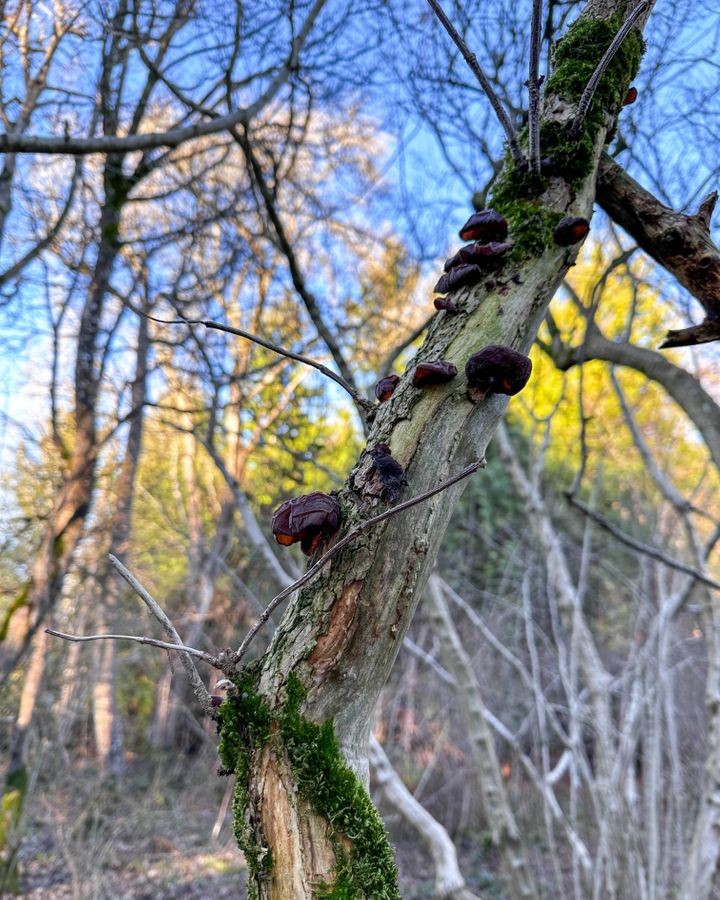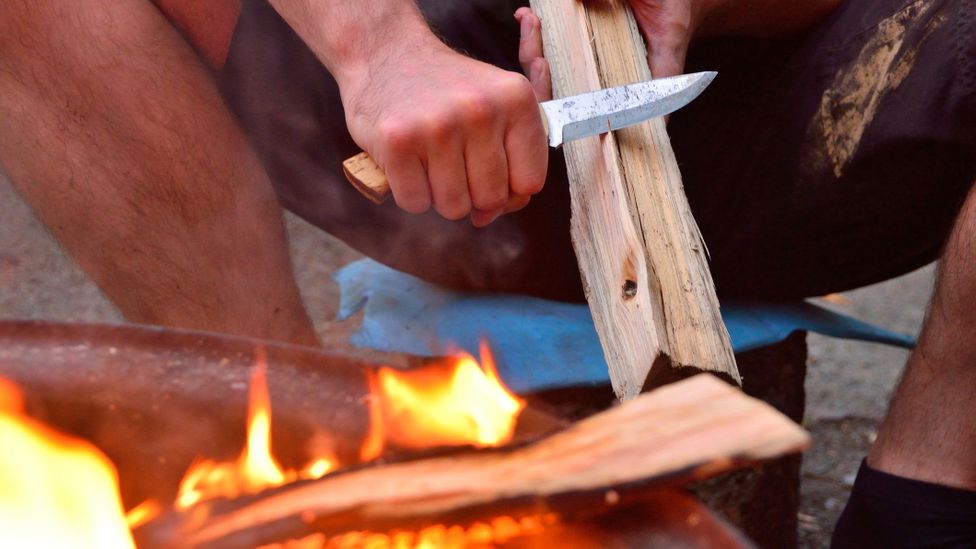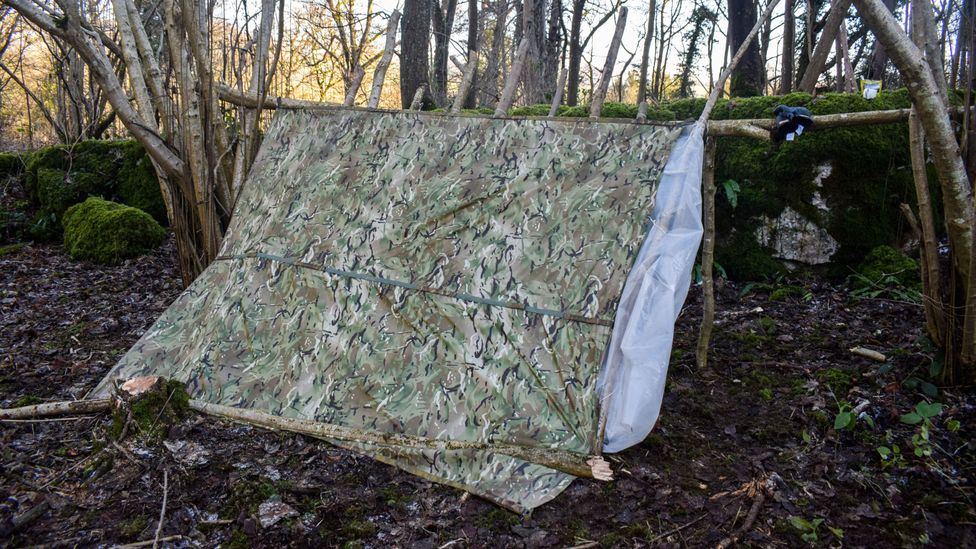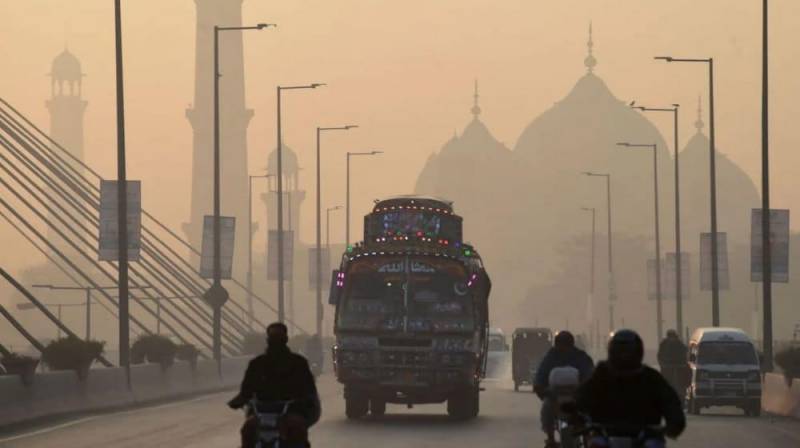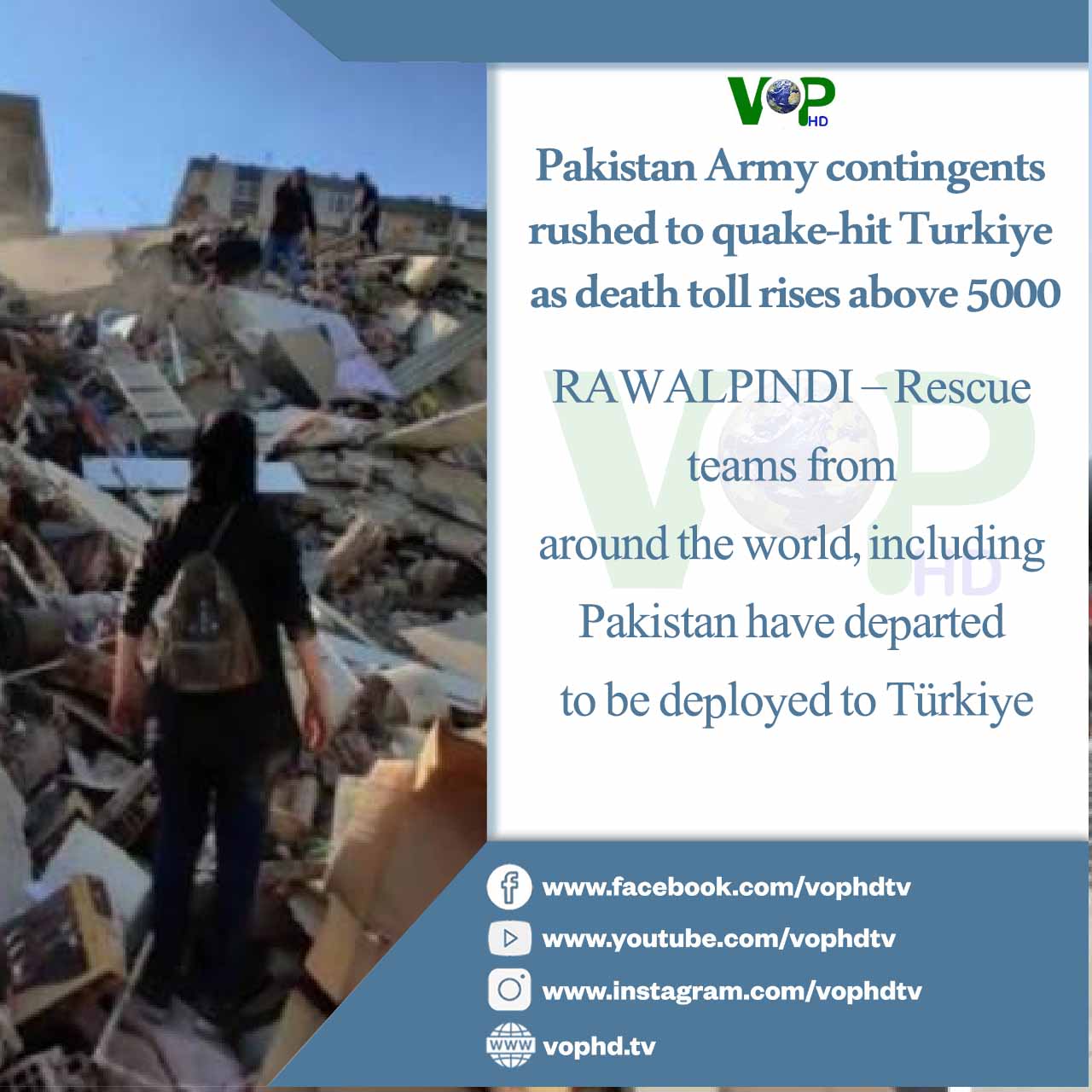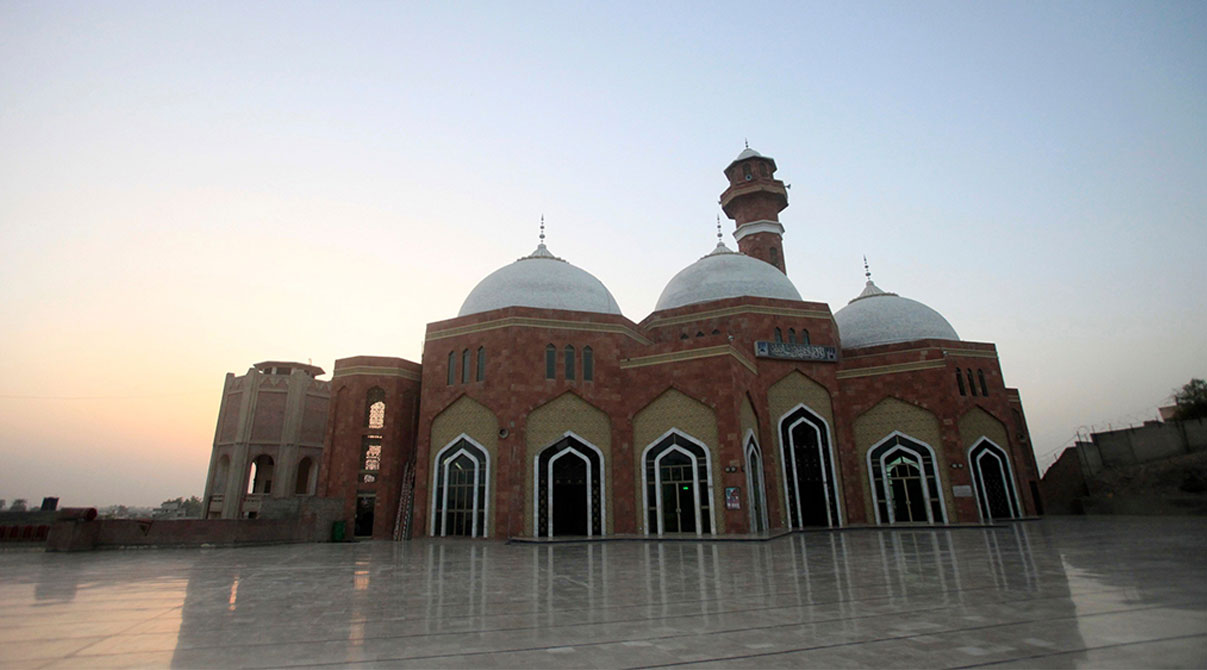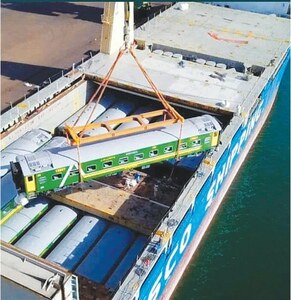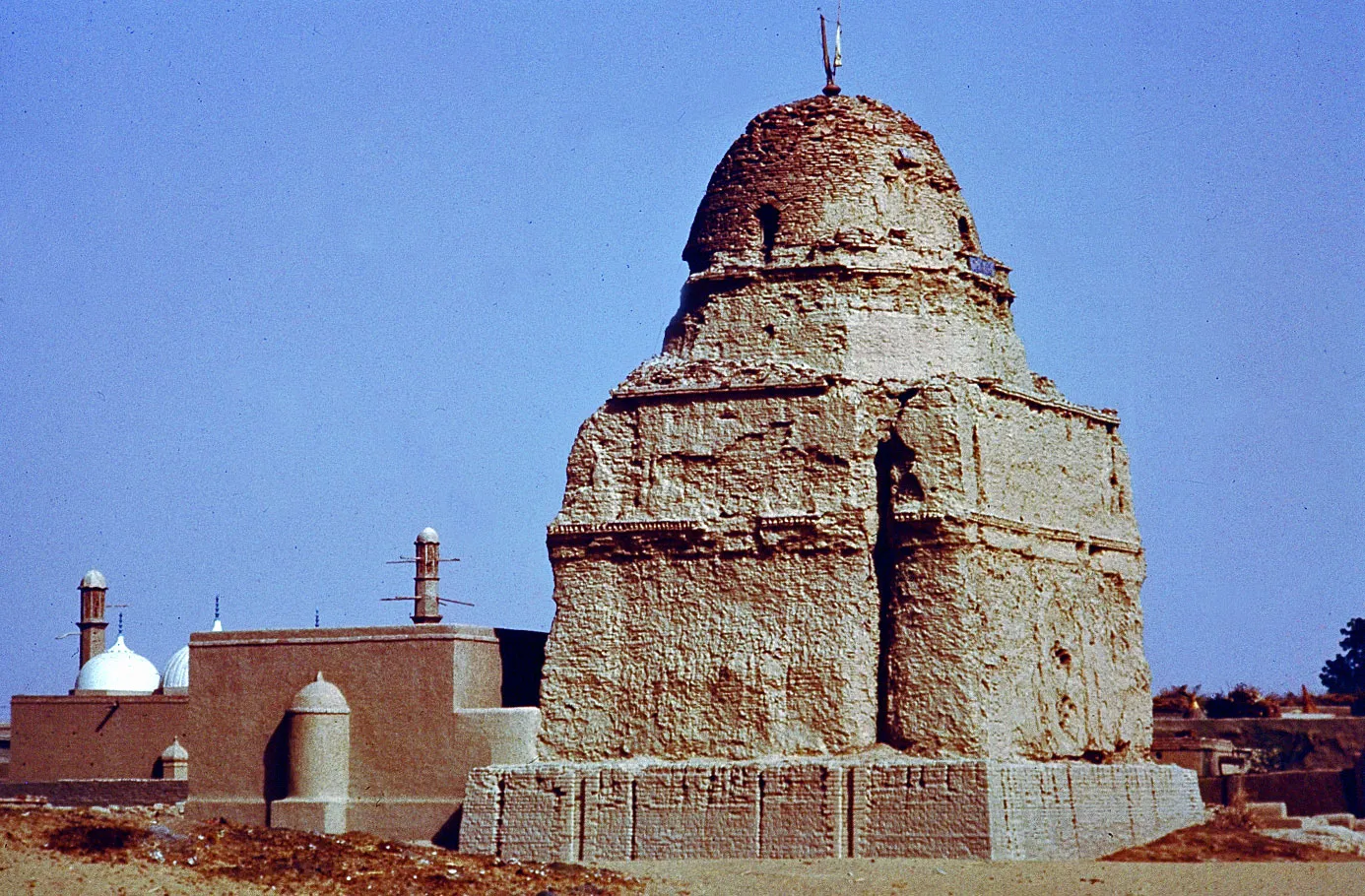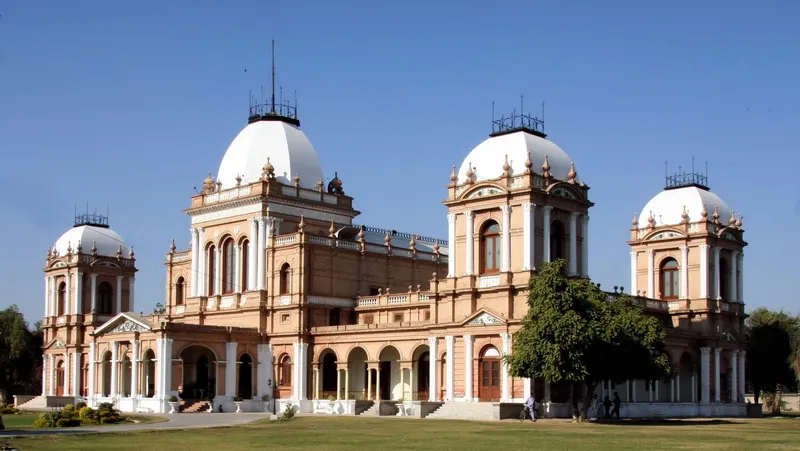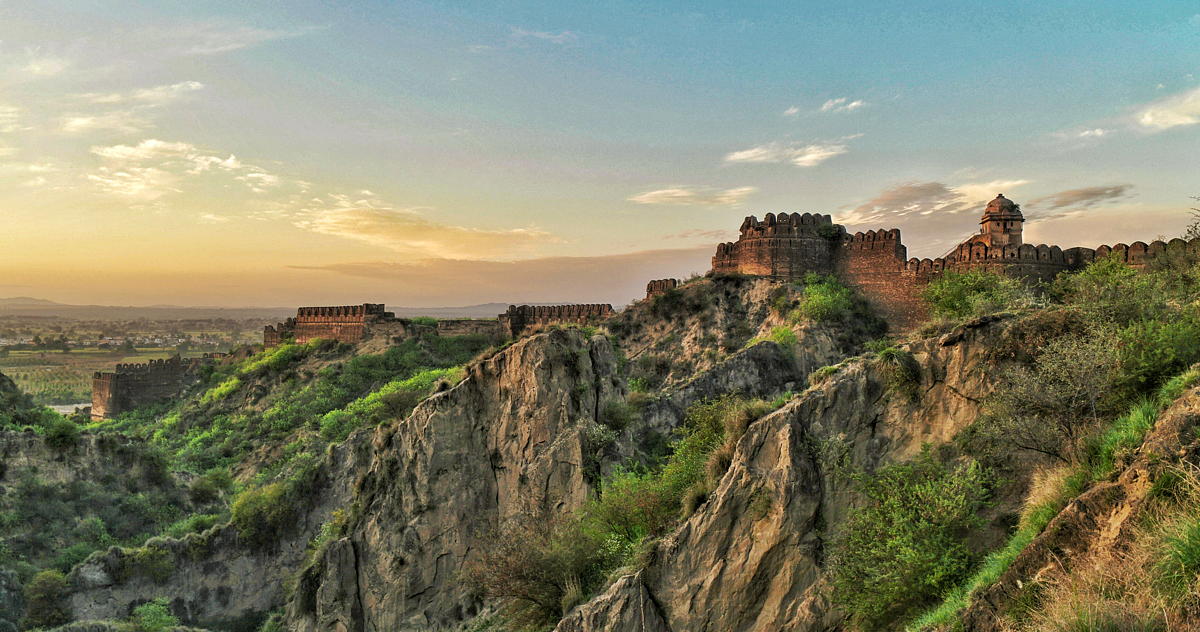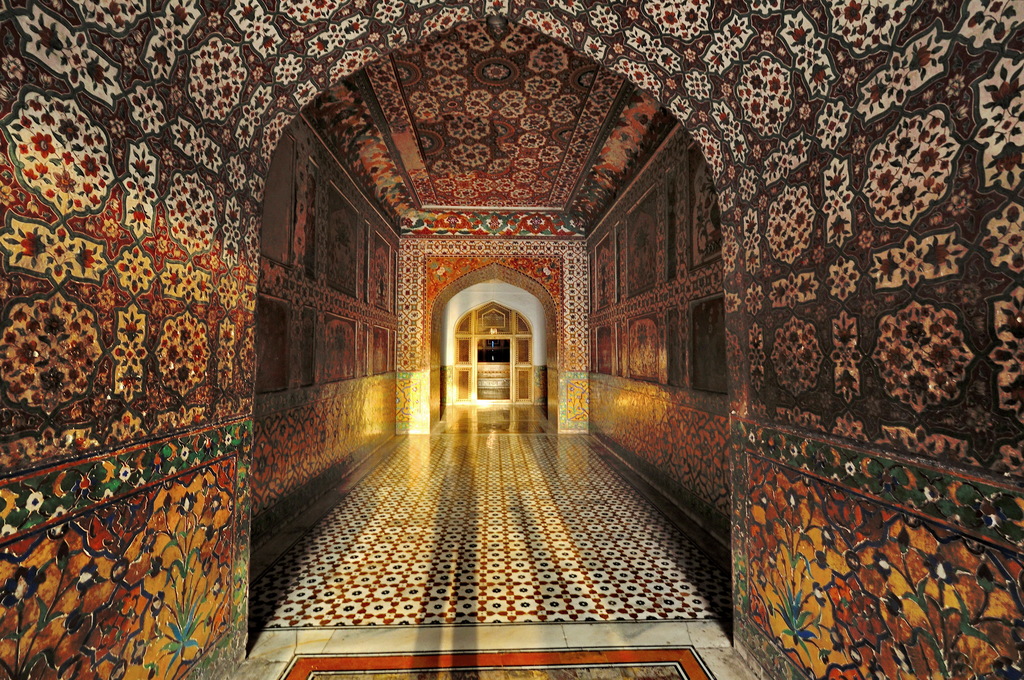“So – what do you think’s going to kill you first?” said Original Outdoors instructor Richard Prideaux, with the hint of a smile. “Starvation’s a few weeks down the track. Water’s not a problem – there’s a river down there. But hypothermia, yes. That’s a possibility on a night like tonight.” He looked up at the brittle winter sky, clouded only by wisps of breath. “Yep,” he said. “We’re gonna freeze.”
It was mid-January, and I was standing in a woodland near the Welsh market town of Ruthin with a grubby backpack at my feet. I would be joining the increasing numbers of people in Britain and worldwide taking to woodlands and wildernesses to learn ancient survival skills – foraging food, making fire, building a shelter – to rekindle a lost connection with the natural world. Tonight was set to be the coldest night of the year; beyond the ash and birch trees, the humps of the Clywdian Hills were dusted with snow. My first survival experience would be a baptism of ice.
Human beings are almost extinct in the wild. The majority of us would be clueless in a true survival situation, having been coddled and cosseted by the comforts of civilisation. Cloistered away in our homes and offices, with fresh water at the turn of a tap, warmth at the touch of a button and food delivered to our doors, we have lost touch with the natural rhythms and resources that keep us alive. The acquisition and practice of survival skills seeks to redress this imbalance, and it has a name: bushcraft.


